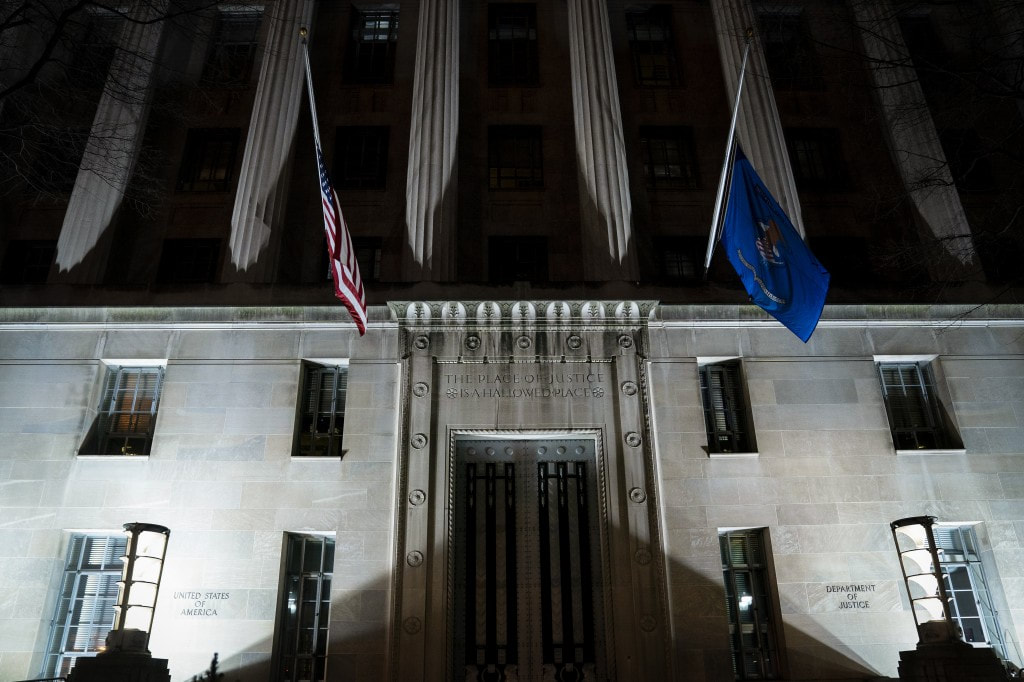|
After almost nine months of waiting, the U.S. Department of Justice finally responded to a joint Freedom of Information Act (FOIA) request by PPSA and Demand Progress Education Fund asking upon what legal basis the government relies in conducting surveillance now that Section 215 of the Patriot Act – the business records provision – has expired. The intelligence agencies had painted an alarming picture on the Hill what could happen if Section 215 was allowed to sunset.
On March 15, 2020, Section 215 expired and the sky did not fall. The government continues to insist the authority is important and needed, though its appeal reads like boilerplate. Observers of the intelligence community are more than a little surprised at the overall calm tone of the intelligence communities – raising the question about the value of the program, and whether the government is secretly relying on another authority to continue its surveillance. After suing to enforce their FOIA request, PPSA and Demand Progress finally received a copy of an October 29, 2020 letter that Stephen Boyd, Assistant Attorney General, had sent to Senators Patrick Leahy (D-VT) and Mike Lee (R-UT). In response to their querying, the Assistant Attorney General’s letter read: “The Department of Justice can confirm that, with the sunset of these provisions of FISA, the Federal Bureau of Investigation (FBI) has not used these important national security tools for foreign intelligence investigations initiated after March 15, 2020. Nor has the FBI relied on E.O. 12333 or any other Article II authority to conduct collection activities previously authorized under these FISA provisions.” So warrantless surveillance of Americans is not taking place, right? Crucially, the Assistant Attorney General followed up: “However[…] the Government has relied upon the exception in the sunset provisions to seek business record production orders and/or surveillance orders with roving authority in a limited number of circumstances for foreign intelligence investigations that began before March 15, 2020.” In other words, any investigation that was ongoing before that date could now use this loophole to circumvent the sunset of previous investigatory authorities. This is expected, but may be a concern if the government employs elastic definitions of what constitutes an “investigation.” Section 215, known as the “business records provision” of the PATRIOT Act (later amended and reauthorized by the USA FREEDOM Act), governed the warrantless surveillance of a wide range of personal information held by businesses. To acquire such sensitive records, all the FBI had to do was assert the data sought was relevant to a foreign intelligence investigation. With the expiration of Section 215, Members of Congress and civil liberties organizations want to know the current legal basis for government surveillance. The expired sections also included a “roving wiretap” and “lone wolf” provisions. The former allows the government to continue surveilling a court-approved individual when they attempt to circumvent surveillance, while the latter allows the government to surveil foreign individuals engaged in international terrorism without connections to larger terrorist groups. PPSA and Demand Progress Education Fund filed our FOIA request in October 2020 with the Department of Justice to bring to light the legal basis for mass domestic surveillance of Americans in the absence of Congressional authorization. This effort was spearheaded by former U.S. Sen. Mark Udall (D-CO) and former House Judiciary Committee Chairman Bob Goodlatte (R-VA). And their work built off of a previous letter sent in July of 2020 by Senators Leahy and Lee. The senators’ letter to Attorney General William Barr and National Intelligence Director John Ratcliffe demanded an answer to whether federal agencies had terminated surveillance authorized by the expired provisions. We now know they have not. Among the questions asked by Sens. Leahy and Lee is whether the DOJ could:
PPSA and Demand Progress Education Fund will report any further developments that shine additional light into this dark region of the intelligence community and its practices. Comments are closed.
|
Categories
All
|


 RSS Feed
RSS Feed